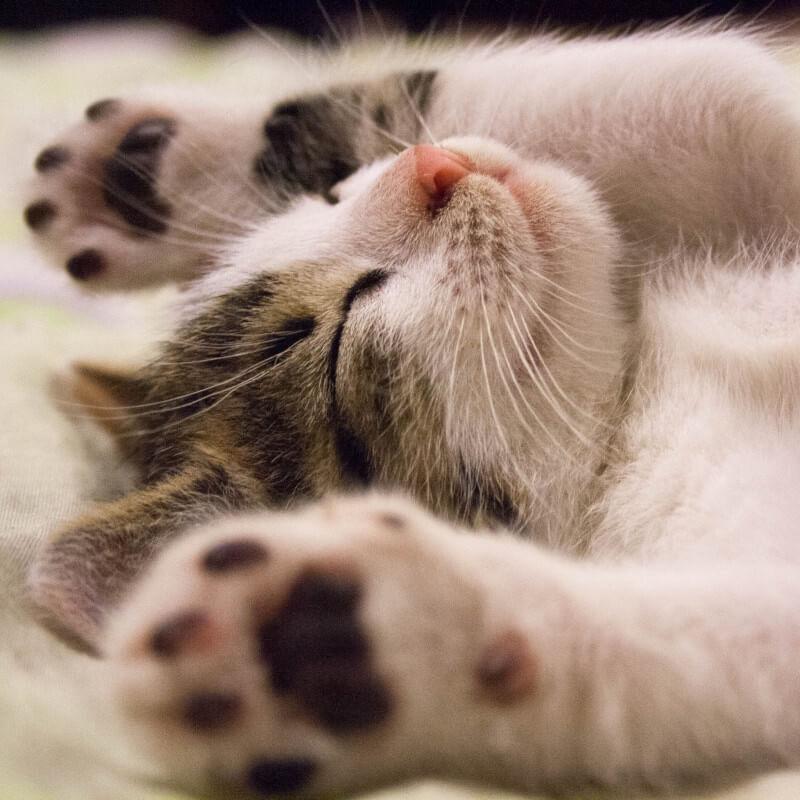
Kittens are an almost endless source of entertainment and cuddles! At Lone Star Animal Hospital, we know how exciting getting a kitten is, and we want to provide you with the best information and advice for a great start. From good nutrition to behavior challenges, get all the tips you need for ensuring he’ll have a long and happy life.
What to expect at your kitten’s first visit
During your first visit, we will perform a thorough physical exam and offer our best recommendations on a wide variety of kitten topics, taking into account breed and lifestyle. We will pass along tailored kitten care information and answer any questions you may have. Plan to spend 45 minutes to an hour with us on the first visit. We will cover topics such as:
- Vaccination schedule
- Diagnosis and prevention of internal and external parasites
- Spaying or neutering
- Behavioral concerns
- Diet recommendations
- Signs of illness
Vaccinations
Kittens should be vaccinated every 3-4 weeks, starting at 6-8 weeks of age. While every kitten will have a tailored plan that their owner is comfortable with, a typical vaccination plan will look something like this:
- 6-8 weeks: FVRCP
- 9-11 weeks: FVRCP
- 12-14 weeks: FVRCP, FeLV, Rabies
- 15-17 weeks: FeLV
It is important to stay current with your kitten’s vaccinations to guard them against these preventable diseases- one of our responsibilities as pet owners is keeping them as happy and healthy as possible. We also recommend keeping your cat indoor, as there are many potentially dangerous environmental factors that could be devastating, such as cars and coyotes.
Diagnosis and prevention of internal and external parasites:
We will recommend a fecal examination, so please bring a sample with you to this visit if possible. Some internal parasites can be a concern for humans as well, so it’s really important information to know and treat if present. We will also have recommendations for prevention of heartworms, fleas and ticks at this visit. While treatment for heartworm disease does exist for dogs, none exists for cats, so prevention is key!
Spaying or Neutering
According to the ASPCA (www.aspca.org), approximately 6.5 million companion animals enter U.S. animal shelters nationwide every year, and each year, approximately 1.5 million shelter animals are euthanized. Spaying and neutering reduces the number of unwanted litters. Kittens reach reproductive maturity by 5-6 months of age, so it’s important to have you kitten spayed or neutered in a timely fashion. Beyond avoiding unplanned litters and avoiding life-threatening conditions such as pyometra (uterine infection) and testicular cancer, by spaying or neutering at this time, you will also avoid unpleasant habits such as territorial spraying. If your kitten will be in contact with other kittens or cats of the opposite sex, it is even more important that you have them spayed or neutered no later than 5-6 months of age.
Behavioral concerns and litter box training
A great time to discuss any problem behaviors is during your kitten's visits to our hospital. We will discuss any concerns you may have and offer solutions, as well as covering general tips to set your kitten up for success. We will offer information you can take home so that everyone in your family can do their part in helping to encourage positive play and behaviors.
Litter boxes should be in a quiet and somewhat private location, should be easy for your cat to reach, and away from noisy household appliances. Keeping a clean litterbox is very important as kittens and cats tend to stop using it when dirty- plan to clean it regularly. If you have multiple cats in your home, the “rule of thumb” is one box per cat, plus one.
Diet recommendations
Depending on the age of your kitten, diet recommendations will vary. A mother cat should be feeding kittens during the first 4 weeks of life, but if you find yourself caring for an orphaned kitten, you should use a special commercial milk-replacer formula every 2-4 hours. Around 3-5 weeks of age, you should transition the milk-replacer formula to a shallow dish and encourage weaning from the bottle. You can also add a canned or moistened dry kitten food to the milk replacer to make a “gruel”, and feed 4-6 times a day. By 5-8 weeks of age, kittens should have no trouble chewing their food; you should transition gradually to a high-quality, protein rich diet, with feedings taking place 3-4 times daily. After 5-6 months of age, you can reduce feedings to twice daily.
Choosing a diet can be overwhelming with all of the options available at most pet stores, but we would like to help with this and make recommendations based on your cat’s specific needs. Typically we will recommend at least introducing canned food to your kitten because it more closely resembles a natural diet in consistency and formulation (mainly protein and carbohydrate levels).
Signs of Illness
Kittens have an immature, growing immune system, and are susceptible to diseases that can be very serious. Most are preventable with vaccinations, but vaccinations alone will not prevent all illnesses of course. An owner should be observant for changes in behavior and symptoms of illness. If you observe any of the following symptoms in your kitten, it may be an urgent or emergency situation and you should contact your vet immediately:
- Vomiting or Diarrhea
- Lack of appetite
- Lethargy (tiredness or listlessness)
- Poor weight gain
- Labored (difficulty) breathing
- Pain
- Coughing
- Pale gums
- Red eyes or eye discharge
- Sneezing or nasal discharge
- Straining or inability to pass urine or stool
Schedule Your Kitten’s First Visit
Scheduling an appointment is easy just give us a call, send us an email. We look forward to meeting your new addition!
